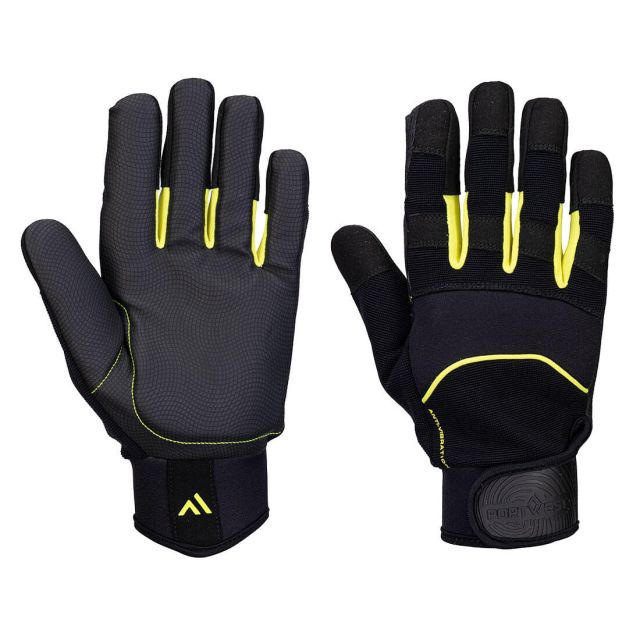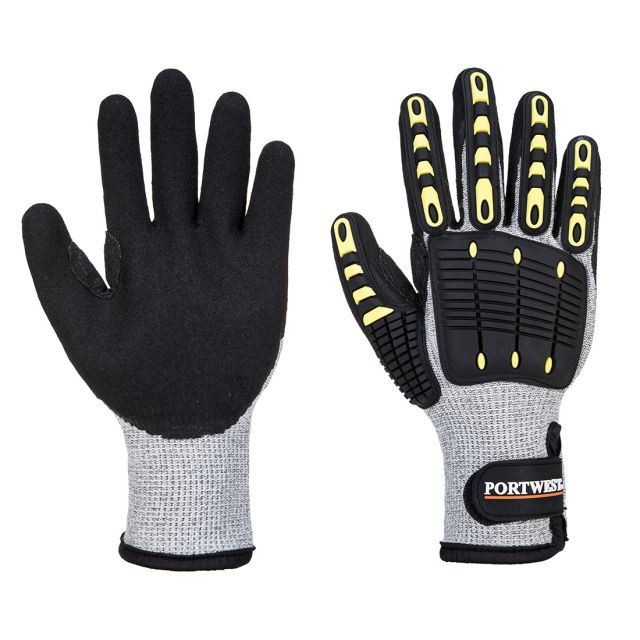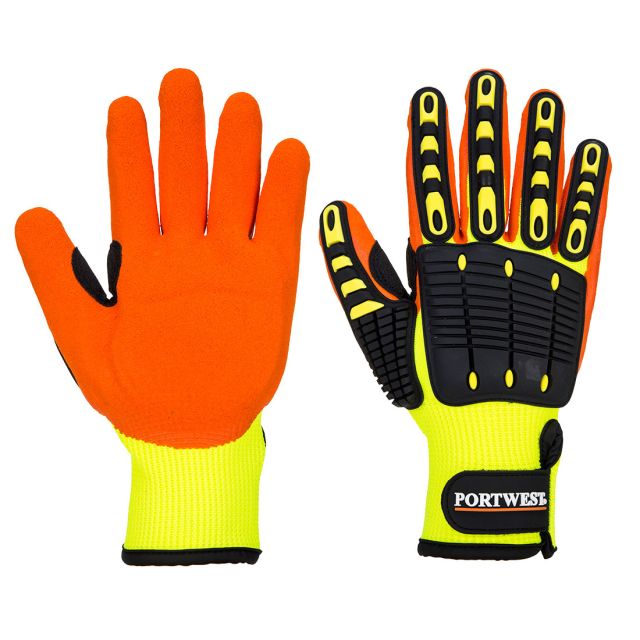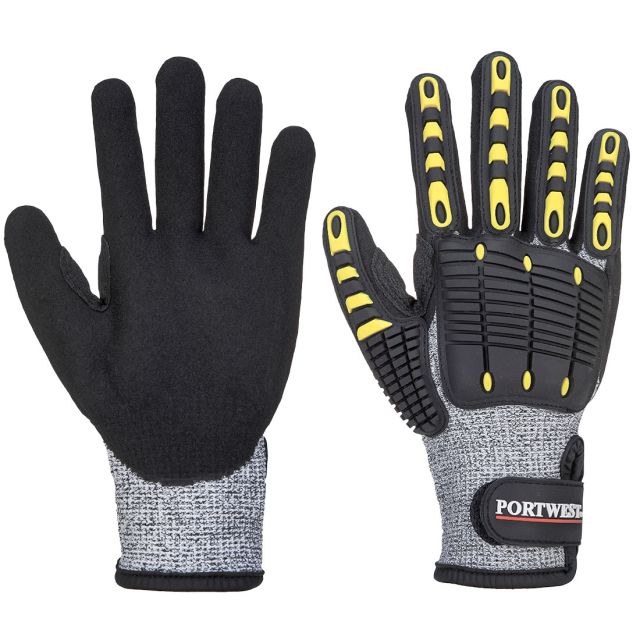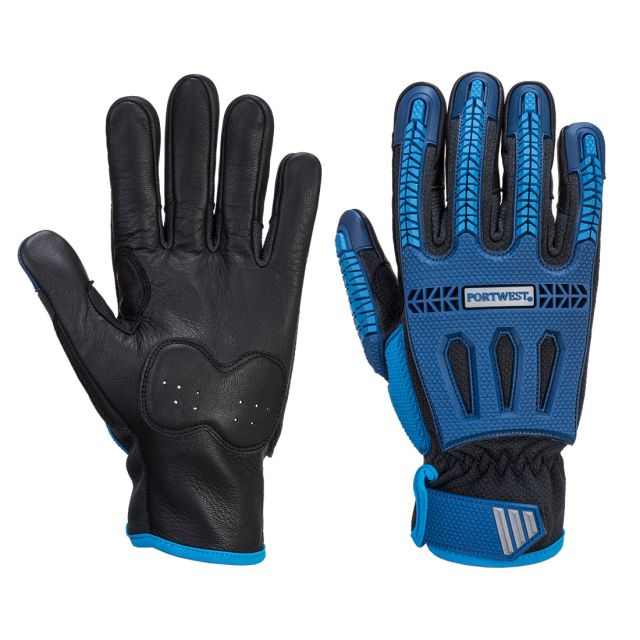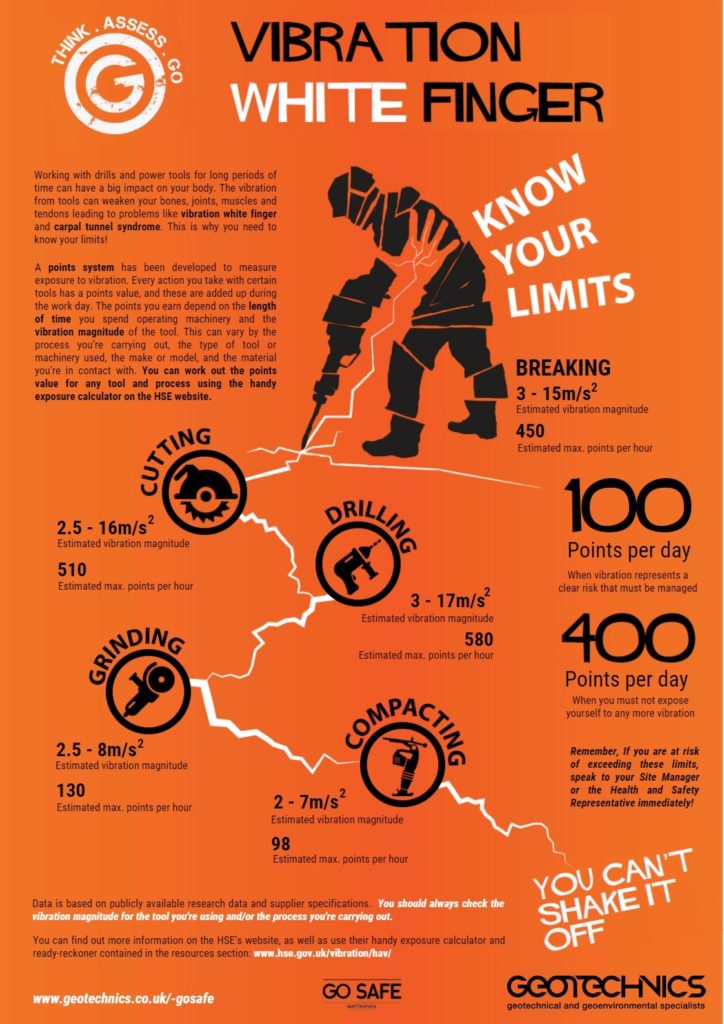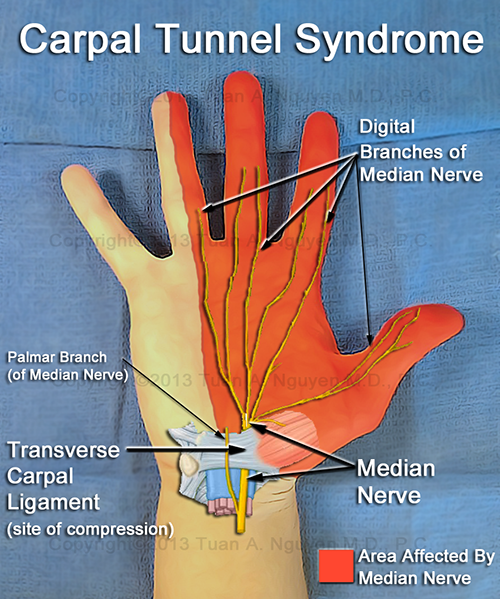Anti-Vibration Gloves: Do They Work?
The invention of Anti-vibration gloves were a gift from the PPE Gods for workers who use automatic equipment such as pneumatic tools, rivet guns, jackhammers, etc. As more and more tools became powered, there were more and more vibration injuries reported in the workplace.
Many brands offer different protection for the person who is wearing the gloves. These are vibration-dampening, impact resistance, and metacarpal protection, which all reduce the risk of injury.
Studies have shown that vibration resistant gloves reduce the risks of vibratory injuries but may not prevent other types of injury. It all depends on the glove.
- Page Contents
- The Risk of Injury
- Hand/Arm Vibration Syndrome
- Carpal Tunnel Syndrome
- Vibration White Finger
- Reducing Risks
- Do Anti-Vibration Gloves Work?
- Conclusion
The Risk of Injury From Vibration
Repeated vibration trauma is a serious health and safety problem for workers who operate heavy machinery without using the correct PPE such as anti-vibration gloves.
Those workers regularly exposed to vibrations from power tools are at risk of several injuries. These are Hand Arm Vibration Syndrome (HAVS), Carpal Tunnel Syndrome (CTS), and/or Vibration White Finger (VWF).
Hand/Arm Vibration Syndrome
(HAVS) is serious and disabling, with almost 2 million people at risk. Damage can include the inability to carry out fine motor work with the cold as a potential trigger for finger blanching attacks. Hand/Arm Vibration Syndrome can cause pain, tingling, and a loss of sensation or strength.
It is preventable with the correct type of anti-vibration gloves, but once the nerves, blood vessels, and/or joints are damaged, it is permanent.
Vibration White Finger
Vibration White Finger (VWF) is a form of Raynaud’s syndrome that is triggered by over-exposure and the use of hand-held machinery that vibrates. It affects 20% of the population worldwide. Although Vibration White Finger is the official term for this type of vibratory injury, it has been called "White Finger Syndrome" or simply "White Finger".
This syndrome causes the tips of your fingers to turn white because of abnormal spasms in the blood vessels that limit the supply to local tissues.
The primary disease is an autoimmune disease of the connective tissue, VWF is a secondary characteristic of the syndrome. Treat this by keeping warm, such as wearing gloves when it is cold. VWF can restrict blood supply, and in serious cases can cause ulcers, scarring, or gangrene.
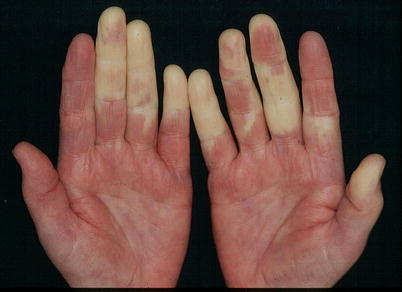
The good news is that the number of cases of vibration related syndromes, are declining due to better awareness within the workplace. This has lead to regulations limiting the exposure of vibrations to workers, and of course, the introduction of cost-effective anti-vibratory PPE such as vibration dampening gloves.
Carpal Tunnel Syndrome
(CTS) is when the median nerve, controlling sensation and movement in the thumb and first three fingers, is pinched or compressed. This compression results in numbness, tingling, weakness, or pain in the hand.
Solutions to help ease the pain in your wrist from Carpal Tunnel Syndrome caused by vibration is to wear a wrist splint, relieving nerve pressure as you sleep. The best practice is to cut down on the causes, such as playing an instrument or using vibrating tools altogether - but anti-vibration PPE hand protection will reduce the risk before any problems occur.
How to Reduce Risks
For you and/or your employees, make sure that when you have to operate vibrating machinery, you keep your hands warm to improve blood flow and circulation. Take frequent breaks. Limit the time each person uses the equipment and invest in equipment that has reduced vibration.
Wearing protective gloves can help to keep your hands warm when it is cold. Because of this, it is always a good idea to wear them when using heavy, vibrating machinery. Although speciality gloves are not mandatory, they are needed to protect employees from the cold.
- Limit Time of Exposure to Vibration
- Keep Hands Warm During and Immediately After Exposure
- Take Frequent Breaks
- Wear Vibration Dampening Gloves
- Be Aware of the "Buzzing" in Your Hands & Fingers and ACT on any Changes
Do Anti-Vibration Gloves Work?
Anti-vibration gloves will protect the wearer because they keep hands warmer, improving blood flow as well as absorbing a great deal of the vibratory energy before it reaches the skin. Both are benefits when using vibrating machinery.
It is crucial to make sure you have healthy blood circulation to avoid any long-term health issues in your hands.
Although they are beneficial, the gloves should not be seen as a long-term solution for employees who use the machinery often. These PPE gloves do not reduce the frequency related to vibration injuries.
They offer many health and safety benefits, but the best way to protect employees from potential risks is to monitor how often they use the machinery. Also, you can provide other tasks for your workers to do so they can take a break.
Conclusion
Most Anti-vibration gloves do not protect the wearer completely from all hazards, although many now come with cut-resistance, but they offer a level of protection that is vital. As someone trying to build a PPE kit, invest in good quality, warm, well-fitting gloves to protect you from vibration related diseases.
But do anti-vibration gloves work to help prevent vibration related injury and diseases?
Absolutely
- How Long Does PPE Last? (Probably Not As Long As You Think) - 12th March 2025
- BSIF Issues Urgent Warning: 90% of PPE from Non-Registered Providers Fails Safety Tests (2025) - 10th February 2025
- Understanding UK Safety Standards for Respiratory Protection - 14th October 2024








